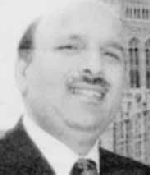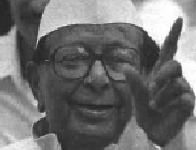

![]()
BANGKOK, Saturday (AFP) - Sri Lanka, Bangladesh, India and Thailand have launched an economic cooperation grouping to boost trade and investment between South and Southeast Asia.
Ministers of the four countries signed a declaration in Bangkok on Friday to create the Bangladesh, India, Sri Lanka and Thailand Economic Cooperation (BISTEC) group.
It aims to expand links across a swathe of sectors, ranging from tourism and transport to agriculture and human resources development.
Burma was granted observer status to BISTEC, and officials of the other countries said they were confident that Rangoon would become a full member at the group’s next ministerial meeting expected within a year.
Thai deputy foreign minister Pitak Intrawiyanunt hailed the declaration as opening “a new chapter” in cooperation between the signatories, to “build a bridge linking South and Southeast Asia.”
Combatting skepticism that BISTEC would become a largely symbolic “talking group,” ministers announced they would frame an air transportation cooperation project to promote tourism by the end of the year.
The officials could not, however, provide any clear details of the proposed project.
They said the scheme would be set up on the basis of contributions from BISTEC member states and handled by the grouping’s secretariat in Bangkok.
Pitak said the “BISTEC Airline” project could in principle embrace the national carriers of member countries as well as private sector airlines.
“We want to convert this declaration into concrete action,” remarked Indian Minister of State Saleem Iqbal Shervani, saying there was immediate potential for boosting inter-regional tourism between religious pilgrimage sites.
The declaration signed Friday identified nine areas of potential cooperation, namely trade, investment and industry, technology, human resources development, tourism, agriculture, energy, infrastructure and transportation.
A Thai foreign ministry official said the grouping would “fill a void in linking the subcontinent with southeast Asia,” adding that BISTEC was considering inviting Malaysia and Indonesia to join the group.
Burma — which separates Thailand and the Indian subcontinent — would prove to be a very important member of BISTEC in providing a possible landlink between the two sub-regions in trade and transport cooperation, he said.
Bangladesh State Minister for Foreign Affairs, Abdul Hasan Chowdhury said there was “no overriding obstacle” to military-run Burma’s entry into BISTEC.
“I’m very hopeful they will be with us in the next formal meeting,” he said, adding that this should come “within a year.”
BISTEC will hold annual ministerial meetings to be hosted in rotation between members, but efforts would be made to maintain frequent “informal contacts,” Chowdhury said.
BISTEC is the latest in a line of Asian regional groupings geared largely towards the promotion of economic ties.
These include the Association of Southeast Asian Nations (ASEAN), the South Asia Association for Regional Cooperation (SAARC) and the Asia-Pacific Economic Cooperation Forum (APEC).
“Skeptics might question whether another regional organisation will be able to fulfill any of our expectations. Certainly, many international organisations have been created, and many have faded away,” Pitak said.
But pointing the longeivity of ASEAN and SAARC, formed 30 and 13 years ago respectively, he told dignitaries at the signing: “We must prove the critics wrong once again.”

KATHMANDU, Saturday - India on Friday opened a new transit route that will allow goods from landlocked Nepal to reach ports in Bangladesh by crossing through northeastern India, Nepali Foreign Ministry officials said.
Visiting Indian Prime Minister Inder Kumar Gujral agreed during his meeting with Nepali Foreign Minister Prakash Chandra Lohani to open the 71-km (44-mile) route on a trial basis for six months.
The new transit route has been a longstanding Nepali demand. India currently provides other routes but Nepal says the new route, linking Kakarvitta in eastern Nepal with Banglabandh in Bangladesh through India, would be more viable.
At present Nepali traders ship their cargo through Calcutta in India, which is often very congested.
Gujral, the first foreign leader to visit the Himalayan kingdom since Prime Minister Lokendra Bahadur Chand took office in March, arrived on Thursday on a three-day official visit.
The two countries signed a pathbreaking agreement allowing private firms from both nations to produce and trade electric power, and made effective a water-sharing treaty that ended a dispute that had soured bilateral ties for years.
Labour Party chiefs are preparing to throw the book at corrupt MP Mohammed Sarwar.
Now Mr. Sarwar, 44, is set to lose the Labour whip in the Commons following a probe by a special committee.
The three-member team grilled him recently.
Party chiefs say their full report will be ready in the next 10 days. The whip is expected to be withdrawn from Sarwar immediately afterwards.
The inquiry team was set up by Labour’s ruling National Executive Commitee, on the orders of Premier Tony Blair.
There are also moves to bring Sarwar before the House of Commons Standards and Privileges committee which looks at the behaviour of MPs.
If that committee ruled against him, he could be booted out of the Commons temporarily.
But he cannot be barred permanently unless convicted by a court - News of the World
There is not going to be another Tiananmen Square in Hong Kong. The Chinese communist’s ruling cadre may have little natural empathy for Hong Kong’s political freedoms but they know, whatever protests meet them after the July 1 hand-over by Britain, that a violent clamp-down of such proportions would alienate the Western world in a manner that could not be so easily repaired as it was after the events of June 4, 1989.
If presidents Bill Clinton and Jacques Chirac or Chancellor Helmut Kohl then chose to continue to be as accommodating to China’s interests as they are now they would be overwhelmingly overruled by both public opinion and their legislatures.
The Beijing authorities are shrewd enough to know that, while the student protestors of Tiananmen Square were naive enough to think their own mass could somehow defy and triumph over their government to the extent that they pointedly refused to accept support from workers’ movements, the democrats of Hong Kong are a much more sophisticated bunch. Not only in Martin Lee’s Democratic Party, the largest party in Hong Kong’s elected legislature, do they have a democratic mandate, they represent a broad coalition of interest groups, of which students are only a minority.
If a second Tiananmen Square is most unlikely there is, however, undoubtedly going to be a real tussle for power.
I doubt in his wildest dreams that Governor Chris Patten ever thought that the Chinese would simply swallow his democratic and human rights reforms. But what he knew he was doing - and what he has succeeded in doing-was to empower the Hong Kong people. They now have to fight their own wars. Neither Chris Patten, nor Margaret Thatcher, nor Tony Blair nor Madeleine Albright nor any of the other notables who plan to be in Hong Kong on the last day of the month to watch the Union Jack run down can fight it for them. Anything short of a repeat Tiananmen Square they are effectively on their own, apart from the odd shout of encouragement from the bleachers.
This middle terrain - between total repression and total capitulation-is going to be the battleground. And who can at the moment predict with absolute certainty where, over what, the battles will be fought and who, in the end, will prevail?
Nevertheless, the signs, on balance, are propitious. The early show of toughness by governor-elect Tung Chee-hwa has already been softened. After announcing that he planned to give the police stronger powers to curb public protests and to impose a ban on the solicitation of campaign contributions from overseas he was forced to tone down the proposals in the face of loud local criticism. He also moved to occupy the high ground by announcing that the formidable number two to Chris Patten, Mrs. Anson Chan, would stay on as his deputy. He then appointed as Chief Justice the relatively young, very democratically minded, Andrew Li Kwok-nang.
If it weren’t for the ominous presence of the shadow legislature that meets over the border in China every Saturday morning one could read these tea-leaves with a great deal of hope. After all Li Ruihuan, nothing less than a Beijing politiburo member, not so long ago publicly counselled his colleagues (I paraphrase) “not to clean the Hong Kong teapot, otherwise it wouldn’t make such good tea.”
But the shadow, unelected, legislature is the rub. At one minute past midnight on July 1, there will be two competing legislatures in existence - this Chinese nominated one and Hong Kong’s duly elected one.
The issue will not be whose interpretation of the 1984 Joint Declaration on Hong Kong with its “one country, two systems pledge” is right. There is no outside neutral arbitrator to intervene and pronounce on that, although there has been some hazy talk about Britain taking it to the World Court. It will be a straightforward battle of wills between Mr. Lee’s Democrats and Governor Tung to see who will blink first.
You can place your bets. Beijing has already hedged its by promising that there will be fresh elections in a year. A reasonable bet would be that by five minutes past midnight there will be some role swapping. The shadow legislature will become the official one and the official one the shadow one. But Mr. Tung will not move to close it down, rather to sideline it as much as possible, arguing to his Chinese masters that he has already won their approval for tolerating protests and that they shouldn’t risk alienating the professional middle class who will choose to make use of their foreign passports if Hong Kong’s atmospherics become unpleasant.
But then in a year at election time the Democrats will find that they are once again in a strong position. Beijing will doubtless want to keep the number of fully elected seats under their already announced limit of 50%. The Democrats will push for 100%, offering as their concession a willingness to dissolve their shadow legislature. Willy-nilly, Governor Tung will find that he has the job of trying to bridge the divide. But unless Beijing has the stomach for another Tiananmen Square, which it does not, Mr. Tung will be allowed to negotiate a compromise. My hunch is that it won’t be too unfavourable to the Democrats.
The writer is a columnist for the Washington Post, the New York Times, and a regular contributor to the BBC on political comment. He was a foreign affairs columnist for the International Herald Tribune.


What’s in a name?
Well, consider the case of Sonia Gandhi, not yet centre stage but close enough- the Congress Party, which has ruled the world’s largest democracy for almost 50 years. So will the next chapter in its history be written in a fine Italian hand?
By joining the Congress, Rajiv Gandhi’s widow has entered the political arena just when Benazir Bhutto, the daughter of Prime Minister Zulfikar Ali Bhutto, has decided to quit politics. (For now?). Yes, the Houses of Parliament in South Asia have often looked like Widows’ Houses. Sometimes daughters. Anyway what happens in India, on the national political scene, could, and often does, affect neighbours.
About Sonia Gandhi’s long-term political aims, there are many theories afloat in New Delhi, from the lobbies of the Lok Sabha to the India International Centre to the Press Club. On her immediate preoccupations, there seems to be little debate. In a word, BOFORS... sometimes described by columnists as India’s Watergate. She has sent a clear message to the party bosses, the power-broker wallahs as some columnists call them. “If her slain husband Rjiv Gandhi’s name is dragged into the case, she will not take it lying down” reports Askari Zaidi of the TIMES of INDIA Delhi bureau, after a conversation with an All-India Congress Committee (A.I.C.C) member. And yet she has chosen to become only a “primary member” and not an “active member, the T.O.I. commentary pointed out. Only an active member is entitled to hold office or be nominated to any of the Congress Party’s many committees. And yet, the Congress Party secretary Oscar Fernandes felt confident enough to tell the media that “she is going to be a mass leader.” What formal role she decides to choose for herself is immaterial. It has been a cry from party workers and countrymen at large that she should join the party to fill the void created by the assasination of Rajiv Gandhi”.
Has the party secretary read the signs correctly?
We may not have to wait too long for the answer. Voting for state as well as national party office-bearers, presidents included, begin on June 9.
Whatever the final outcome, there can be little doubt right now that Sonia Gandhi’s statements and gestures have created what the eminent Soli Sorabjee calls” endless speculation about her motivation and the implications of her move”. Circumstances and coincidence have helped; the Women’s Reservation Bill- a measure that would reserve a certain number of seats in the Lok Sabha and the state assemblies for women.
Nobody has suggested that Sonia Gandhi had anything to do with this proposal but it did help to mobilise “women power” just when Prime Minister Inder Kumar Gujral was confronted by the Nehru-Gandhi dynasty demanding a privileged place in the Congress and the Indian political system. The Constitution Amendment Bill has brought more trouble for the Congress. The D.M.K., the powerful spokesman of Tamil interests demanded that the O. B. C. ‘s (Other Backward Castes) should also be included whereas the Indian Union Muslim League (IUML) rejected the idea of a “quota” reserved for women.
Under the mounting pressure of conflicts, caused by issues and personalities, the party system in India has come under severe strain. If self-interest, ideology, respect for leaders and loyalty cannot preserve the unity of the main parties, the Congress most of all, can a new personality- even a foreigner- become the final option ?
So tomorrow June 9 is truly a red letter day for the Indian political system. The Congress will elect a president. On the 10th, Janata Dal will go through the same operation. And it is the party of the Prime Minister Inder Kumar Gujral. And nobody can possibly ignore the fact that this essential democratic exercise has been undertaken on the orders, yes the explicit instructions of the Election Commission. What is at stake is not merely democratic practice but generational change. Sitaram Kesri is 76 while Sharad Pawar is 56. Not even the most casual observer of today’s battle can miss this generational factor. “All over the world, young leaders are stepping forward to take over the mantle and if I am not that young, I am also not that old” Mr. Pawer reminded the press.
Will the Indian voter react strongly to the exposure of large- scale corruption or will he accept it as part of the political system? The federal police has decided to prosecute Laloo Prasad Yadav, the Janata Dal chief in a massive 280 million dollar fodder scandal. Will that scandal improve the chances of his rival, who belongs to the same “low caste”? A new “alliance” of 15 parties, Left-inclined and centre-left, staged a large demonstration to remind voters that it could be a “factor” when the time comes for coalition- building.
The media however continues to focus on Sonia Gandhi. And with her in the news, Sri Lanka remains part of the polls campaign coverage. As the ECONOMIST reminded its readers last week: “By entering politics, the widow of Rajiv Gandhi, a former prime minister, risks death. Indira Gandhi, Sonia’s mother-in-law and Rajiv’s predecessor as prime minister, was assasinated by Sikh guards who were outraged when she ordered the army in 1984 to storm a temple, taken over by gunmen. Rajiv Gandhi sent Indian troops to Sri Lanka to help the government cow its Tamil Tiger rebels, and was killed by Tamil extremists in 1991. Sonia and her children continue to get death threats from the two aggrieved groups. But if she wants to enter active politics however she cannot remain in her barricaded house”.
But Sonia Gandhi is not entirely alone or unprotected. The leader of Tamil Maanila Congress (TMC). G. Moopanar recently told the press in Delhi: “I am not sorry for being close to Sonia Gandhi, I felt hurt when they said I am still close to Sonia Gandhi..... We defeated the Congress. We are registered with the Election Commission. We also got our own symbol.”
While the Sri Lankan polls watcher will focus on Congress and its performance, the more serious question is whether there will be a ruling party or alliance strong enough in the Lok Sabha to guarantee India’s political stability. A strong administration in Madras which has close links with the government in Delhi, is the best bet, for India’s small neighbour Sri Lanka cut off from the Indian sub-continent, yes Indian sub-continent by the Palk Straits.
The Indo-Soviet Treaty, an extraordinary pact between the founder of NAM and the Communist superpower, is kaput. But India’s neighbours must pray that India does not go the post-Cold War Soviet way.
Return to News/Comments Contents Page
![]()
| HOME PAGE | FRONT PAGE | EDITORIAL/OPINION | PLUS | TIMESPORTS
Please send your comments and suggestions on this web site to
info@suntimes.is.lk or to
webmaster@infolabs.is.lk